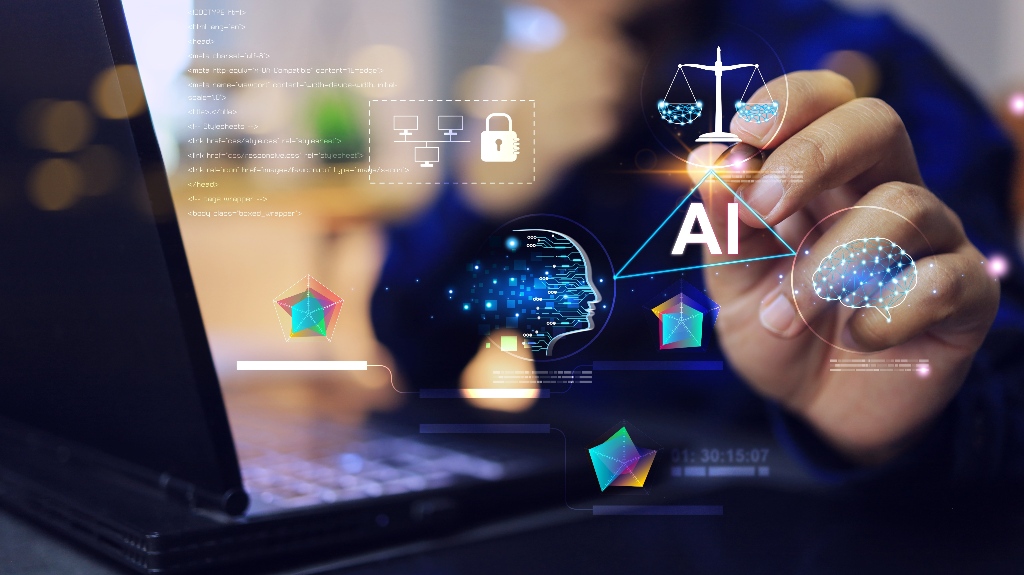
As artificial intelligence (AI) continues to evolve, the evolution of IP litigation in the artificial intelligence (AI) sector is becoming a focus for business and legal professionals. With advancements in machine learning, neural networks, and other AI technologies, the landscape of IP litigation is undergoing a significant transformation. From patenting AI-driven innovations to protecting AI-generated works under copyright laws, the intersection of AI and IP raises novel legal questions that creators and businesses must navigate.
Patents in the AI Sector
The rise of AI technologies has led to many patents being filed to protect AI-related innovations. However, the process of patenting AI inventions presents unique challenges. Traditional patent systems were designed with human inventors in mind, yet AI systems can now independently generate inventions, leading to questions about who owns the rights to AI-created innovations.
For example, who should be credited as the inventor— the human engineers who developed the AI system, or the AI itself, which may have autonomously created a new invention? While the United States Patent and Trademark Office (USPTO) and the European Patent Office (EPO) have yet to recognize AI as an inventor officially, this question remains at the heart of ongoing legal debates. In some cases, courts have ruled that a patent must list a human inventor, even if an AI system was responsible for the invention’s development. This issue will likely become more pressing as AI becomes more integrated into innovation processes.
Copyright Protection and AI-Generated Content
AI also presents unique challenges in copyright law, particularly regarding AI-generated content. Copyright protection typically requires a human author, but AI can now generate music, art, literature, and software with little to no human intervention. This raises questions about whether works created by AI are eligible for copyright protection and, if so, who should own the copyright.
In some jurisdictions, such as the U.S., copyright law requires a “human author,” and works produced by AI might not be protected by copyright unless a human creator can be identified. For instance, when AI generates a piece of artwork, the owner of the AI tool may claim ownership of the work. However, many argue that this loophole undermines the rights of traditional creators and could create uncertainty in the future of copyright law.
AI and Trade Secrets
Another important area of IP litigation involving AI is trade secrets. Many businesses rely on proprietary algorithms and AI models that are considered trade secrets. Protecting these trade secrets becomes crucial in industries like tech and healthcare, where AI innovations can drive significant business value. Infringements, whether through reverse engineering or unauthorized access, are frequent in the AI sector and can lead to costly litigation. Companies must safeguard their AI models and algorithms to maintain their competitive edge.
Implications for Future IP Litigation
As AI technologies become more sophisticated and pervasive, the implications for IP litigation will only grow. The courts and regulatory bodies will need to continuously adapt to the rapidly changing landscape of AI-driven inventions and creations. Whether it’s determining patent ownership for AI-generated inventions, extending copyright protections to AI-created works, or safeguarding trade secrets related to proprietary AI models, businesses and legal professionals must work together to ensure that IP rights remain robust in this new technological era.
The rise of AI presents both opportunities and challenges in intellectual property law. From patenting AI inventions to addressing copyright issues surrounding AI-generated content, the landscape of IP litigation is evolving at an unprecedented pace. It is crucial for businesses and innovators to understand these challenges and stay ahead of the curve when it comes to protecting their AI-driven creations.
If you’re navigating the complexities of AI and IP, contact our firm today for legal guidance and assistance in protecting your intellectual property.
Related Posts:
Litigating IP in the Entertainment Industry: From Music to Movies
